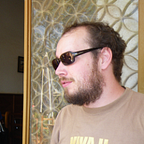Nigeria Isn’t Letting Its Toughest Allies Help Defeat Boko Haram
It’s probably because of politics
by PETER DÖRRIE
Nigeria’s army is on the offensive against Boko Haram. In recent weeks, Abuja’s soldiers liberated several towns, including the town of Baga—where the Islamist terror group committed one of its worst massacres after overrunning an army garrison in January.
But since the liberation of Baga, the offensive against the jihadi group has entered a lull. The Nigerians haven’t announced any important new victories, and Boko Haram continues to stage assassinations, suicide bombings and small-scale attacks.
According to the Nigerian military, everything is going according to plan.
“Indeed, there is no going back or slowing down anywhere,” Maj. Gen. Chris Olukolade said. “The air campaigns are continuing with a view to dislodging all the identified terrorist cells, enclaves or hideouts anywhere in the designated mission area.”
At the same time, the Nigerian military has prevented its allies from moving deeper into Boko Haram’s territory. The Chadian military is also fighting the insurgent group inside Nigeria. In late February, Nigeria ordered the Chadians to halt.
“We turned back because Nigeria did not authorize us to go any further,” Chadian army Col. Azem Bermandoa told Reuters. Days earlier, Chadian troops liberated the Nigerian border town of Gambaru.
Here’s why that’s curious. The Chadian military is comparatively better equipped and experienced in fighting this kind of insurgency. The Chadians previously helped defeat Boko Haram incursions into Cameroon.
If you want to defeat the Islamists, you’ll need Chad’s help. Nigeria’s order to halt could also simply be a misunderstanding.
But it’s just as likely that the Nigerian government and its army are not willing to share any successes—particularly during an election year.
Nigeria’s presidential election is scheduled for March 28. This is after the country postponed the election for six weeks—a response to an escalation in rebel attacks. For its part, Nigeria’s military vowed to defeat the Islamist insurgency during the six-week period.
But the move bought time for incumbent Nigerian Pres. Goodluck Jonathan. If Boko Haram had continued to carry out large-scale attacks, Jonathan might end up without a job.
To put it bluntly, the military offensive is just one part of a larger political campaign. Jonathan, wearing camouflage gear, recently posed for pictures in Baga with soldiers—an inadvertent imitation of Pres. George W. Bush’s “Mission Accomplished” moment.
But Jonathan has faced a series of defections from his party in recent months, significantly reducing his chance of reelection. Relying too heavily on Chad would only add to the embarrassment of letting the conflict spiral out of control under his watch since 2010.
Tensions are growing between the various members of the multi-national coalition arrayed against Boko Haram. Chadian Pres. Idriss Déby Itno has boasted publicly that he knows the hiding place of the group’s leader, Abubakar Shekau, and said it would be “in his interest” to turn himself in.
This type of tough talk is likely directed as much at the Nigerians as toward Boko Haram itself. The Chadian government wants to end the conflict on its border, and sees Nigeria as part of the problem.
Currently, it looks like the joint offensive against Boko Haram will succeed in limiting the group’s territorial control. But for a total military victory, it’s unlikely any one country will defeat the rebel group. The coalition’s members have to trust and cooperate with each other.
Estimates of Boko Haram’s losses in recent weeks run into the thousands, which is likely exaggerated. But the group can leverage its substantial financial reserves to attract new recruits—as its home territory is one of the poorest parts in the region.
Plus, it’s virtually impossible that Nigeria will get the insurgency under control before the election. Even working with the Chadians isn’t enough. Ultimately, Boko Haram is a political problem, arising from catastrophic social and economic problems in the country’s northeast.
The Nigerian government, be it under Jonathan or his successor, will have to one day find an answer to the tensions and inequality that gave rise to the group. It certainly won’t discover one by March 28.
